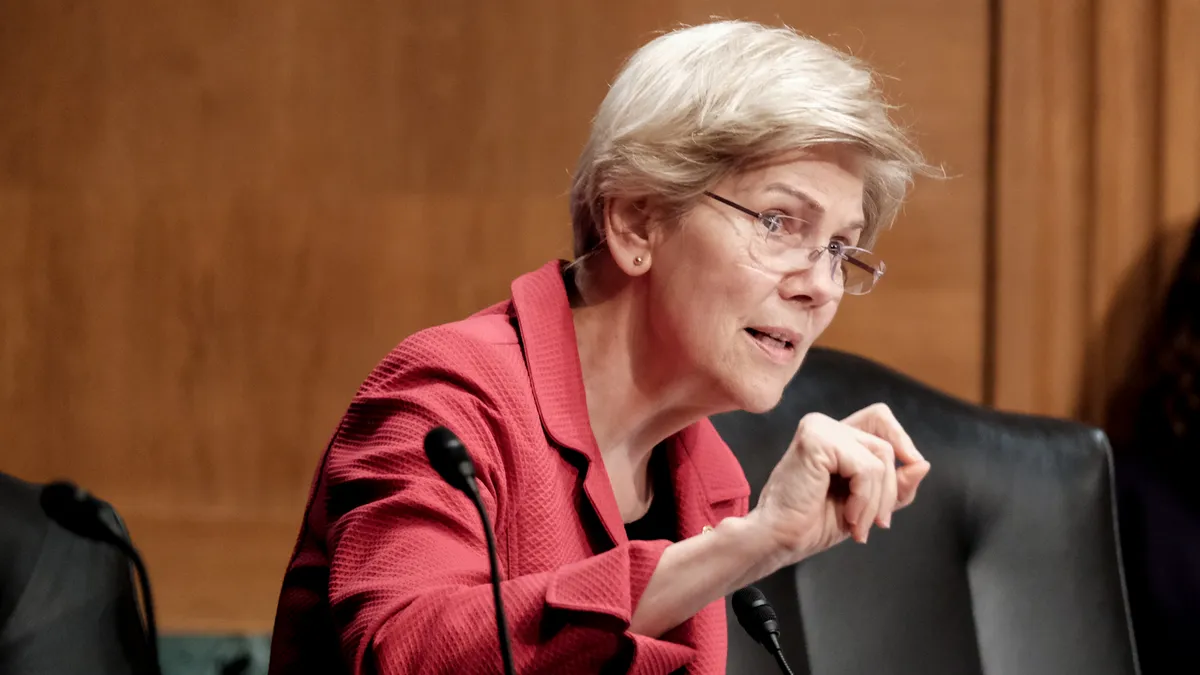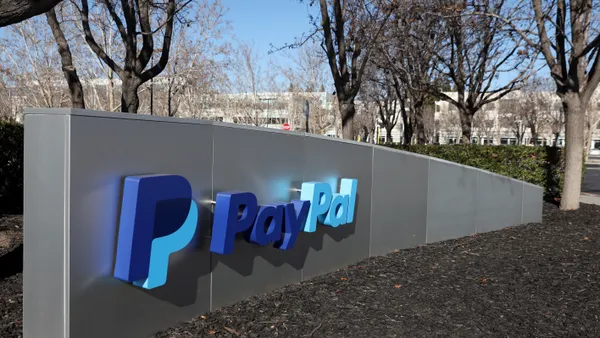Dive Brief:
- U.S. Senators Elizabeth Warren of Massachusetts and Richard Blumenthal of Connecticut and U.S. Rep. Maxine Waters of California sent letters — dated July 1 — to six of the seven banks that own Early Warning Services, the fintech company that operates Zelle, asking how they track fraud on the platform and what they are doing about it.
- A separate letter was sent to JPMorgan Chase, which announced in February that it would stop approving Zelle payments that originate on social media sites like Facebook.
- “We write to request information regarding Bank of America’s most recent efforts to protect consumers from scams and fraud on peer-to-peer (P2P) payment platforms, including Zelle,” the members of Congress, who are all Democrats, wrote in the letter addressed to the Charlotte, North Carolina-based bank.
Dive Insight:
The letters landed four months after the Consumer Financial Protection Bureau dropped a lawsuit against Early Warning Services and its three largest bank owners. The agency had alleged in the lawsuit that EWS and the three banks failed to protect users from fraud and scams and didn’t do enough to help victims recover their money.
The bureau abandoned that litigation after President Donald Trump’s administration began dismantling the agency.
Zelle customers at the three largest bank owners, JPMorgan, Bank of America and Wells Fargo, lost a total of $870 million to fraud on the P2Pnetwork over seven years, the CFPB said in the suit that was filed in December.
The majority of fraud victims were not reimbursed, a Senate subcommittee investigation released by Blumenthal's office in July 2024 found.
The CFPB’s lawsuit was filed when Biden appointee Rohit Chopra was the agency’s director. But the Trump Administration fired Chopra in February and has significantly scaled back the bureau’s enforcement actions under its acting director, Russell Vought, who is also director of the White House Office of Management and Budget.
Warren, Blumenthal and Waters acknowledged the CFPB’s pullback in their July 1 letter.
The members of Congress asked for — among other things — the percentage of scams and fraud committed over peer-to-peer payment platforms like Zelle in the last five calendar years. They also requested information about any other fraud or scam trends identified by the banks, along with the banks’ policies and procedures regarding fraud.
“If Bank of America does not collect this data, why not?” the letter to the bank says.
The letter to JPMorgan made mostly the same requests, but also asked how the bank decided to block Zelle transactions that originated on social media and what additional steps it is taking to protect its customers.
“We have extensive efforts to help clients avoid scams and remind them Zelle should be used to send money to friends, family and people you trust,” a Bank of America spokesperson said in an emailed statement.
Spokespeople for the six other banks named in the letters either did not respond to requests for comment or referred the request for comment to Early Warning Services.
“Zelle is leading the fight against scams and fraud and has industry-leading reimbursement policies that go above and beyond the law,” an Early Warning Services spokesperson said in an emailed statement, although the statement did not describe what those policies entail.
The statement also said that 99.95% “of all transactions on the platform are completed without any report of scam or fraud.”














